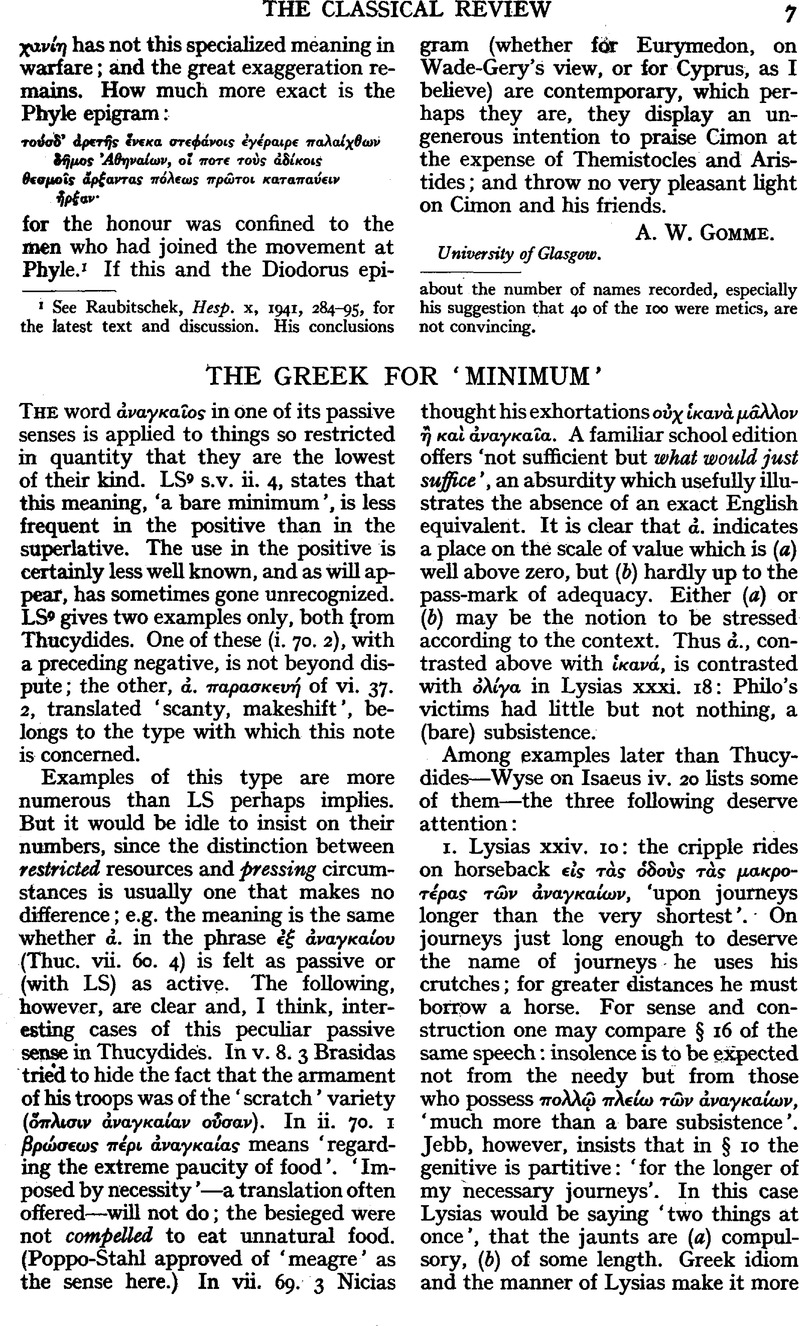No CrossRef data available.
Article contents
The Greek for ‘Minimum’
Published online by Cambridge University Press: 27 October 2009
Abstract

- Type
- Review Article
- Information
- Copyright
- Copyright © The Classical Association 1948
References
1 LS9, though less confident than LS8that ⋯στρ⋯βη never means ‘mule’, still cites this sentence for the meaning ‘mule's saddle’. But in the next sentence the speaker says that if he had ‘such a thing’ as an ⋯στρ⋯βη, he would not need to borrow horses. Now a mule-saddle without a mule would scarcely solve his problems of locomotion! I agree with W. R. M. Lamb (Loeb) that the mule cannot be excluded from the meaning here. The truth about ⋯στρ⋯βη seems to me to be as follows; just as ἅρμα can mean either (1) the car, or (2) the car and horses, or (3) the horses, and just as ζεῈγος can mean either the animals or the vehicle, and ‘yoke’ either the wooden frame or the animals, so ⋯στρ⋯βη can mean either the mule with, or without, mule-saddle or mule-car, or the mule-saddle or mule-car without the mule.


